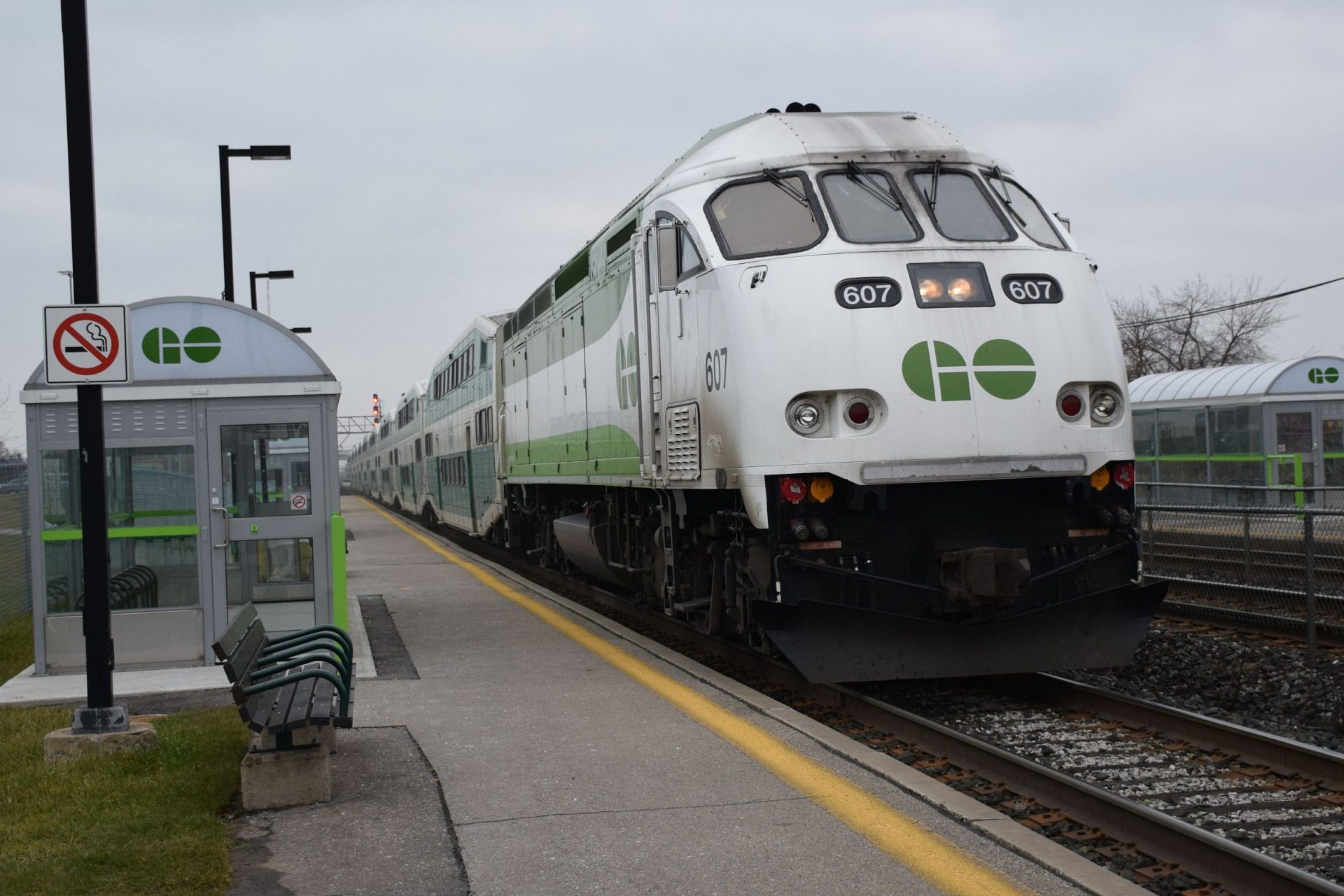2,200 GO Transit bus operators, plant and fleet maintenance workers, and station attendants are on strike at Toronto’s Union Station—against Metrolinx’ efforts to cut and contract-out jobs.
Fight contracting out
Since April, Amalgamated Transit Union (ATU) Local 1587 has been negotiating with Metrolinx. Throughout, the union says, the employer has refused language protecting the workers’ jobs from contracting-out—including after retirement.

According to Metrolinx’s 2022 Strategic Plan, the company has 4,740 workers on the payroll—4,434 regular full-time (“FT”) and 187 are regular part-time (“RPT”)—officially, the company has also come to rely on over 120 contractors.
And, the local says, those contractors have been overrepresented in its department — doing its members’ jobs. “Through the pandemic, our people have gone out there and risked their lives,” Local 1587 President Rob Cormier said: “We’ve seen more and more jobs that we might have done, not being done by us anymore—it’s contractors. So we’re just trying to secure a future.”
As the Metrolinx plan further notes, the company has also launched a “Lean Centre of Excellence” to find other “inefficiencies” and “cost savings” in, above all, staffing. For bussing, which had the highest injury rate of all GO Transit services, this comes with obvious safety concerns.
“Protections against contracting out are imperative to ensure that experienced workers are on the job running GO Transit safely and efficiently,” said Cormier. “Without these protections, Metrolinx can contract to outside companies, which will hire inexperienced workers in precarious, non-union positions.
After 81% turned down Metrolinx’s last offer, the company failed to provide any new substantive proposals to increase full-time hiring or protect existing union positions. After the November 7 strike deadline passed, the workers walked out—with some supporting striking CUPE education workers.
Stand Up To Metrolinx
So far, transit operators in Toronto, Mississauga and Hamilton, also unionized with the ATU, have announced that they will not cross the local’s picket lines.
This is a good start but others must follow.
Metrolinx has already warned the workers that it intends to keep GO Train and UP Express transit operating. According to the company: “While we remain hopeful we can continue discussions towards reaching a negotiated agreement, Metrolinx has put its full contingency plan into place.” This will keep Union Station busy while the workers are on strike.
Back in May, crossing picket lines undermined a strike by 95 signal communications workers at the same station, unionized with the International Brotherhood of Electrical Workers. Those workers were also fighting contracting out, along with wage cuts.
All told, Union Station employs members of the Teamsters, the Amalgamated Transit Union, the United Food and Commercial Workers and LiUNA. As the last strike at Union Station demonstrated, this employer has learned how to divide and rule its employees. But, with thousands of commuters entering and leaving Union Station every day, these workers have the combined power to bring Metrolinx’ job-cutting program to a dramatic and sudden stop.
Incompetent bosses who refuse to pay workers suitably for their work or secure their positions forfeit their right to keep workplaces running—especially if they’re willing to endanger the public in the process.
The wider labour movement must mobilize in support of these workers. The fight against Metrolinx’ ultra-hazardous “lean” management system is a fight for unionized workers across the station and across the province.
Victory to the GO Bus Workers!
Picket Lines Mean Do Not Cross!

